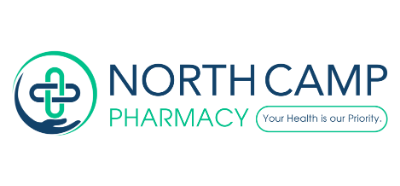
There's currently no cure for Parkinson's disease, but treatments are available to help relieve the symptoms and maintain your quality of life.
These treatments include:
You may not need any treatment during the early stages of Parkinson's disease as symptoms are usually mild.
But you may need regular appointments with your specialist so your condition can be monitored.
You might be offered a device to wear at home that monitors your symptoms. The device shares relevant information with your specialist.
A care plan should be agreed with your healthcare team and your family or carers.
This will outline the treatments and help you need now and what you're likely to need in the future, and should be reviewed regularly.
Read the National Institute for Health and Care Excellence (NICE) guidelines on Parkinson's disease
There are several therapies that can make living with Parkinson's disease easier and help you deal with your symptoms on a day-to-day basis.
There are efforts underway to try to increase the availability of these supportive therapies for Parkinson's patients on the NHS.
Your local authority may be able to advise and help you. Ask your local authority for a care and support needs assessment.
Read about care and support plans.
A physiotherapist can work with you to relieve muscle stiffness and joint pain through movement (manipulation) and exercise.
The physiotherapist aims to make moving easier and improve your walking and flexibility.
They also try to improve your fitness levels and ability to manage things for yourself.
Find out more about physiotherapy
An occupational therapist can identify areas of difficulty in your everyday life, such as dressing yourself or getting to the local shops.
They can help you work out practical solutions and ensure your home is safe and properly set up for you. This will help you maintain your independence for as long as possible.
Find out more about occupational therapy
Many people with Parkinson's disease have swallowing difficulties (dysphagia) and problems with their speech.
A speech and language therapist can often help you improve these problems by teaching speaking and swallowing exercises, or by providing assistive technology.
For some people with Parkinson's disease, making dietary changes can help improve some symptoms.
These changes can include:
You may see a dietitian, a healthcare professional trained to give diet advice, if your care team thinks you may benefit from changing your diet.
Medication can be used to improve the main symptoms of Parkinson's disease, such as shaking (tremors) and movement problems.
But not all the medications available are useful for everyone, and the short- and long-term effects of each are different.
Three main types of medication are commonly used:
Your specialist can explain your medication options, including the risks associated with each medication, and discuss which may be best for you.
Regular reviews will be required as the condition progresses and your needs change.
Most people with Parkinson's disease eventually need a medication called levodopa.
Levodopa is absorbed by the nerve cells in your brain and turned into the chemical dopamine, which is used to transmit messages between the parts of the brain and nerves that control movement.
Increasing the levels of dopamine using levodopa usually improves movement problems.
It's usually taken as a tablet or liquid, and is often combined with other medication, such as benserazide or carbidopa.
These medications stop the levodopa being broken down in the bloodstream before it has a chance to get to the brain.
They also reduce the side effects of levodopa, which include:
If you're prescribed levodopa, the initial dose is usually very small and will be gradually increased until it takes effect.
At first, levodopa can cause a dramatic improvement in the symptoms.
But its effects can be less long-lasting over the following years – as more nerve cells in the brain are lost, there are fewer of them to absorb the medicine.
This means the dose may need to be increased from time to time.
Long-term use of levodopa is also linked to problems such as uncontrollable, jerky muscle movements (dyskinesias) and "on-off" effects, where the person rapidly switches between being able to move (on) and being immobile (off).
Dopamine agonists act as a substitute for dopamine in the brain and have a similar but milder effect compared with levodopa. They can often be given less frequently than levodopa.
They're often taken as a tablet, but are also available as a skin patch (rotigotine).
Sometimes dopamine agonists are taken at the same time as levodopa, as this allows lower doses of levodopa to be used.
Possible side effects of dopamine agonists include:
Dopamine agonists can also cause hallucinations and increased confusion, so they need to be used with caution, particularly in elderly patients, who are more susceptible.
For some people, dopamine agonists have been linked to the development of compulsive behaviours, especially at high doses, including addictive gambling, compulsive shopping and an excessively increased interest in sex.
Talk to your healthcare specialist if you think you may be experiencing these problems.
As the person themselves may not realise the problem, it's key that carers and family members also note any abnormal behaviour and discuss it with an appropriate professional at the earliest opportunity.
If you're prescribed a course of dopamine agonists, the initial dose is usually very small to prevent feeling sick and other side effects.
The dosage is gradually increased over a few weeks. If feeling sick becomes a problem, your GP may prescribe anti-sickness medication.
A potentially serious, but uncommon, complication of dopamine agonist therapy is sudden onset of sleep.
This generally happens as the dose is being increased and tends to settle once the dose is stable.
People are usually advised to avoid driving while the dose is being increased in case this complication occurs.
Monoamine oxidase-B (MAO-B) inhibitors, including selegiline and rasagiline, are another alternative to levodopa for treating early Parkinson's disease.
They block the effects of an enzyme or brain substance that breaks down dopamine (monoamine oxidase-B), increasing dopamine levels.
Both selegiline and rasagiline can improve the symptoms of Parkinson's disease, although their effects are small compared with levodopa. They can be used alongside levodopa or dopamine agonists.
MAO-B inhibitors are generally very well tolerated, but can occasionally cause side effects, including:
Catechol-O-methyltransferase (COMT) inhibitors are prescribed for people in later stages of Parkinson's disease.
They prevent levodopa being broken down by the enzyme COMT.
Side effects of COMT inhibitors include:
When Parkinson's symptoms become difficult to control with tablets alone, a number of other treatments can be considered.
A dopamine agonist called apomorphine can be injected under the skin (subcutaneously) either by:
Co-careldopa and foslevodopa-foscarbidopa are possible treatments for severe Parkinson's.
They're medicines that are pumped continuously into your tummy through a tube.
There's an external pump attached to the end of the tube, which you carry around with you.
These medicines are only available if you have severe on-off fluctuations or involuntary movements.
Most people with Parkinson's disease are treated with medication, although a type of surgery called deep brain stimulation is used in some cases.
This surgery is also available in specialist neuroscience centres around the UK, but it's not suitable for everyone.
If surgery is being considered, your specialist will discuss the possible risks and benefits with you.
Deep brain stimulation involves surgically implanting a pulse generator similar to a heart pacemaker into your chest wall.
This is connected to 1 or 2 fine wires placed under the skin, and is inserted precisely into specific areas in your brain.
A tiny electric current is produced by the pulse generator, which runs through the wire and stimulates the part of your brain affected by Parkinson's disease.
Although surgery does not cure Parkinson's disease, it can ease the symptoms for some people.
As well as the main symptoms of movement problems, people with Parkinson's disease can experience a wide range of additional symptoms that may need to be treated separately.
These include:
Much progress has been made in the treatment of Parkinson's disease as the result of clinical trials, where new treatments and treatment combinations are compared with standard ones.
All clinical trials in the UK are carefully overseen to ensure they're worthwhile and safely conducted. Participants in clinical trials sometimes do better overall than those in routine care.
If you're asked if you want to take part in a trial, you'll be given an information sheet about the trial.
If you want to take part, you'll be asked to sign a consent form. You can refuse to take part or withdraw from a clinical trial without it affecting your care.
Some people with Parkinson's disease find complementary therapies help them feel better.
Many complementary treatments and therapies claim to ease the symptoms of Parkinson's disease.
But there's no clinical evidence they're effective at controlling the symptoms of Parkinson's disease.
Most people think complementary treatments have no harmful effects. But some can be harmful and should not be used instead of the medicines prescribed by your doctor.
Some types of herbal remedies, such as St John's wort, can interact unpredictably if taken with some types of medication used to treat Parkinson's disease.
If you're considering using an alternative treatment along with your prescribed medicines, check with your care team first.






































